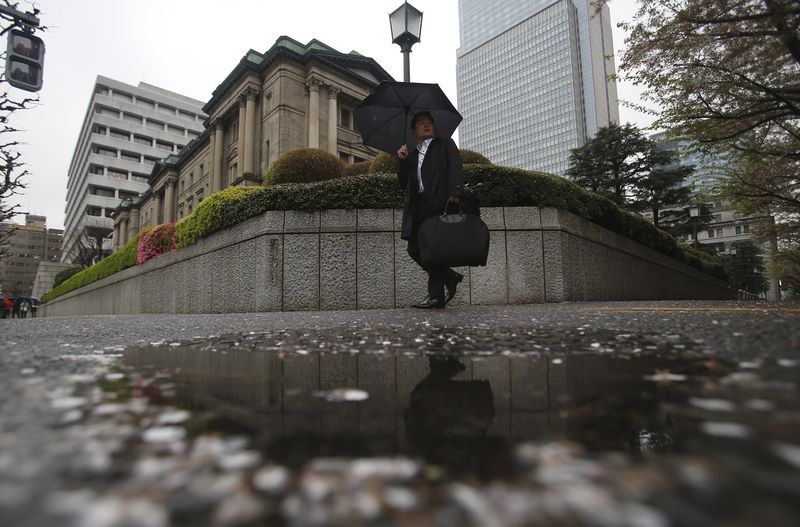By Tetsushi Kajimoto
TOKYO (Reuters) - Japanese industrial output fell for a second straight month in March, adding to mounting evidence of an economy struggling to regain momentum after last year's sizable hit to consumption from a sales tax hike.
The 0.3 percent decline in output compared with a median market forecast for a 2.3 percent drop and a 3.1 percent fall in the prior month, government data showed on Thursday.
Analysts had expected factory output to have eased again last month after posting its biggest gain in nearly four years in January, thanks to a pick in exports.
However, slowing global growth continues to raise doubts about the outlook for external demand. On top of this, tame private consumption - which accounts for about 60 percent of the economy – is pushing the Bank of Japan into a tight corner even as it is expected to hold off on offering fresh stimulus at Thursday's policy review.
"It's true that the decline was much smaller than expected. Still, factory output was disappointing as it failed to sustain a big gain in January while inventory has piled up," said Takeshi Minami, chief economist at Norinchukin Research Institute.
"U.S. first quarter growth proved poor and China is slowing down, so external demand is weighing on Japan's production."
On Wednesday data showed the U.S. economy - a major export market for Japan - nearly stalled in the first quarter. A statement from the Federal Reserve said the slowdown was probably transitory but still suggested any interest rate hike will not happen soon.
Manufacturers surveyed by the Ministry of Economy, Trade and Industry expect output to rise 2.1 percent in April and decline 0.3 percent in May, the data showed.
The ministry stuck to its assessment that industrial output is in a moderate pickup trend.
In a twice-yearly review of its forecasts on Thursday, the BOJ is likely to trim its inflation forecast for this fiscal year but the nine-member board is likely to project inflation to hit roughly 2 percent in the following two years, sources said.

Upbeat projections will allow the BOJ to justify holding steady. However, declines in factory output - a leading gauge of the broader economic cycle - and weak consumption could add to doubts about the BOJ's argument that a solid economic recovery will help accelerate inflation toward its ambitious goal.